
Senior physics writer Emily Conover joined Science News in 2016. She has a Ph.D. in physics from the University of Chicago, where she studied the weird ways of neutrinos, tiny elementary particles that can zip straight through the Earth. She got her first taste of science writing as a AAAS Mass Media Fellow for the Milwaukee Journal Sentinel. She has previously written for Science Magazine and the American Physical Society. She is a two-time winner of the D.C. Science Writers’ Association Newsbrief award, and a winner of the Acoustical Society of America’s Science Communication Award.

Trustworthy journalism comes at a price.
Scientists and journalists share a core belief in questioning, observing and verifying to reach the truth. Science News reports on crucial research and discovery across science disciplines. We need your financial support to make it happen – every contribution makes a difference.
All Stories by Emily Conover
-
 Physics
PhysicsNewton’s groundbreaking Principia may have been more popular than previously thought
A search has uncovered over 300 copies of Isaac Newton’s famous 17th century book, the Principia, revealing a broader readership than assumed.
-
 Physics
PhysicsSupercooled water has been caught morphing between two forms
A new experiment used ultrafast techniques to reveal high-density water transforming into low-density water at subfreezing temperatures.
-
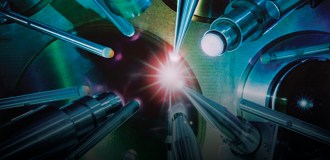 Physics
PhysicsGiant lasers help re-create supernovas’ explosive, mysterious physics
For the first time, scientists have re-created a type of shock wave that occurs in supernovas.
-
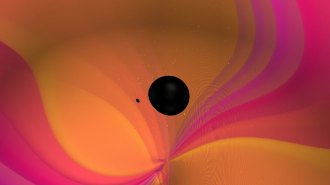 Physics
PhysicsLIGO and Virgo’s gravitational wave tally more than quadrupled in six months
Scientists report 39 sets of spacetime ripples from just half a year of data.
-
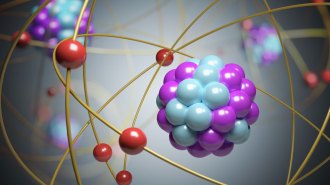 Quantum Physics
Quantum PhysicsGalileo’s famous gravity experiment holds up, even with individual atoms
When dropped, two types of atoms accelerate at the same rate despite their differences, much like objects in Galileo’s leaning Tower of Pisa experiment.
-
 Math
MathA documentary and a Bollywood film highlight two disparate paths in mathematics
An unlikely pair of films recount tales of two very different mathematical women, Maryam Mirzakhani and Shakuntala Devi.
-
 Physics
PhysicsThe first room-temperature superconductor has finally been found
A compound of carbon, hydrogen and sulfur conducts electricity without resistance up to 15° C, but there’s a catch: It works only under high pressure.
-
 Physics
PhysicsFundamental constants place a new speed limit on sound
Physicists propose a new maximum rate that sound waves can travel under conditions normally found on Earth — 36 kilometers per second.
-
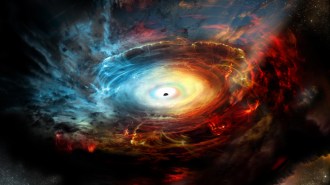 Physics
PhysicsBlack hole revelations win the 2020 Nobel Prize in physics
The Nobel Prize in physics was awarded to a trio of scientists for their work on the most mysterious objects in the universe: black holes.
-
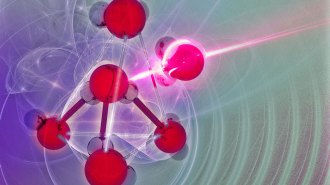 Physics
PhysicsA stop-motion experiment reveals supercooled water’s dual nature
Scientists found signs that water cooled well below freezing consists of two different arrangements of molecules.
-
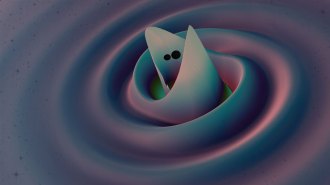 Physics
PhysicsRecord-breaking gravitational waves reveal that midsize black holes do exist
The biggest merger of two black holes so far raises questions about how the pair of objects came to be.
-
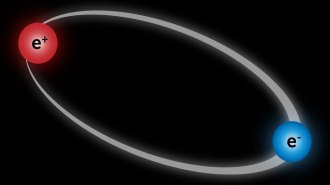 Quantum Physics
Quantum PhysicsA measurement of positronium’s energy levels confounds scientists
A gap in the energy levels of positronium seems to be substantially larger than predicted, and physicists don’t know why.